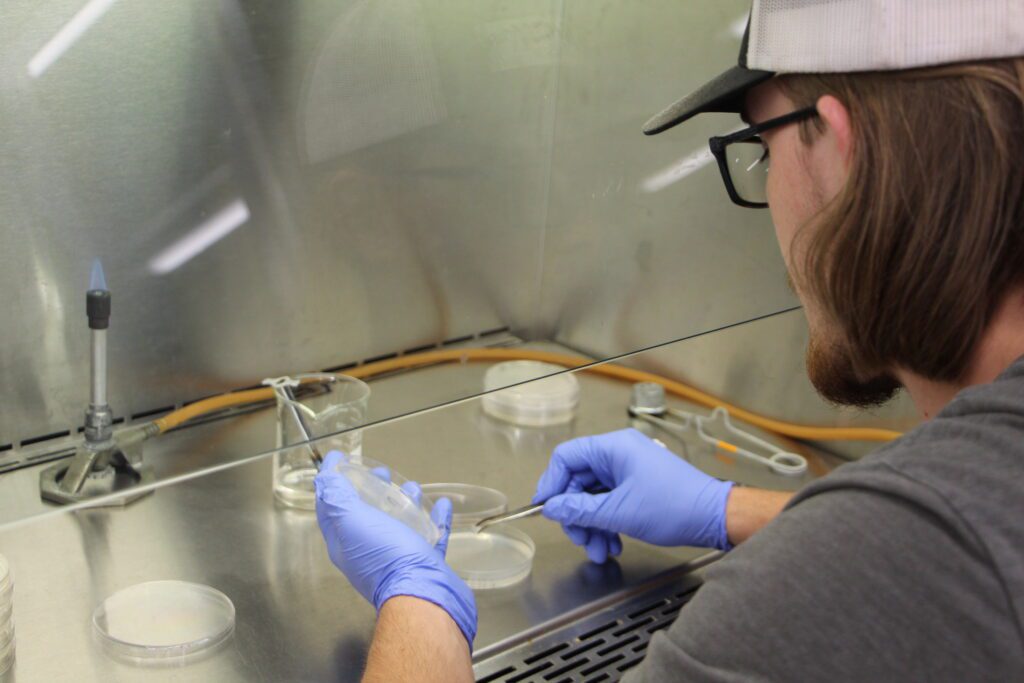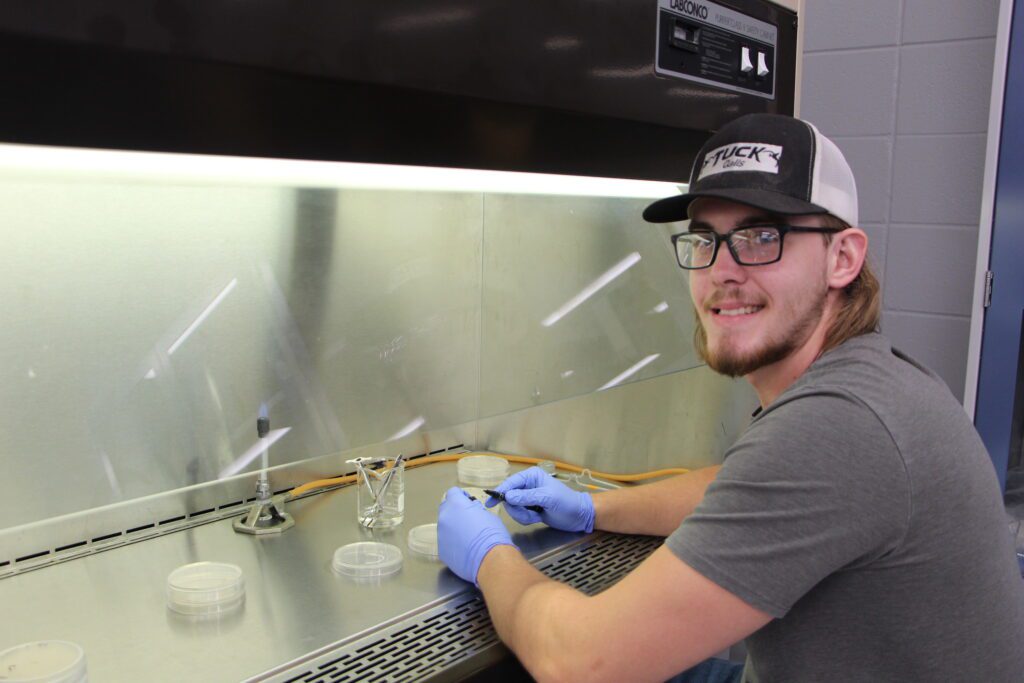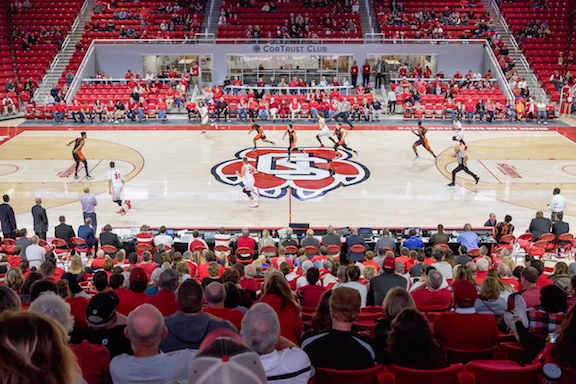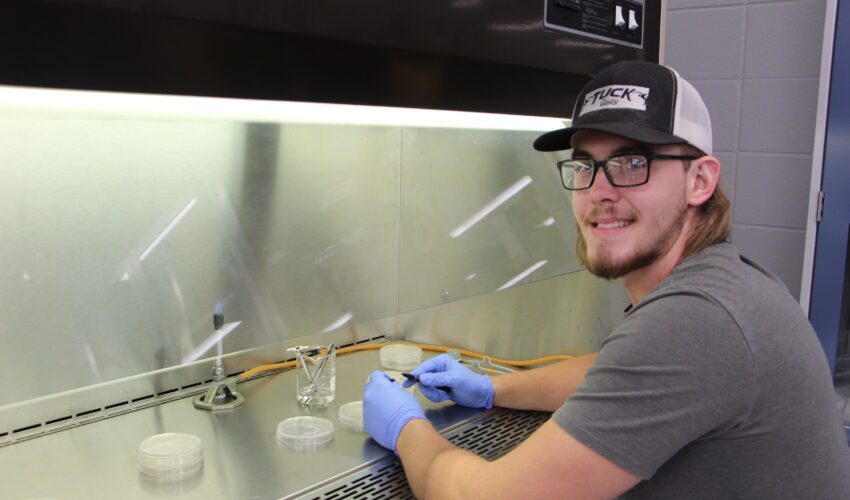How DSU research helps alfalfa growers, benefits students
Sept. 6, 2022
This paid piece is sponsored by Dakota State University.
“Research has to have a purpose,” said Travis Rebstock, a senior Biology major at Dakota State University.
The purpose of the alfalfa research he and other DSU students do is to help the growers.
“You can do all the work, but if you don’t get the information out there for growers to use and apply it, then there’s no reason to do it,” Rebstock said.
Travis Rebstock conducts applied research with alfalfa at DSU. The goal of the students’ research is to help growers.
A number of Dakota State students have been researching the plant for several years and have made significant discoveries, particularly with root rot. This is generating a lot of grower attention, said Dr. Andrew Sathoff, assistant professor of biology at DSU.
“Growers care about their practices here, and want more research and education to optimize yields and manage their crops in the best way possible,” Sathoff said.
Alfalfa is one of the major crops in South Dakota, ranking as one of the top five alfalfa-producing states. Agriculture is the state’s biggest industry, generating $21 billion in annual economic activity, and nearly $3.4 B directly to the state’s economy.
Rebstock grew up in Redwood Falls, Minnesota, and he understands the importance of agriculture, and emphasizes how important their work is for growers and farmers.
Some of the research has been sponsored by Mustang Seeds, which also helps the producers, as the company can work with producers to buy the best product.
Producers, seed companies, and others can read about the students’ published research in several formats, including peer-reviewed, top-tier journals.
- The American Phytopathological Society (APS) article titled “First Report of Aphanomyces euteichesRace 1 and Race 2 Causing Aphanomyces Root Rot on Alfalfa (Medicago sativa) in South Dakota”
- “Management strategies and distribution of Aphanomyces root rot of alfalfa (Medicago sativa), a continuing threat to forage production in the United States” was published in the journal Plant Pathologyin May, and featured student co-authors Jennifer Giles, Conner Tordsen, and Rebstock. These students have been engaged in an EPSCoR-funded Undergraduate Research Experience for the past several months.
- They are working on several pieces for the educational Plant Health Instructor Journal, of which Sathoff is an editor, for general biology teachers to use in courses about alfalfa and plant pathology.
- They have created a fact sheet for the South Dakota 4-H Extension, and are working to do more.
- The students presented their findings at the South Dakota EPSCoR 2022 Undergraduate Research Symposium at the end of July.
- Student Alex Rachynska presented on their work at the Plant Health Conference in Pittsburgh in August.
- Rebstock will present a poster at the World Alfalfa Congress in San Diego in November, on this summer’s work with biocontrols.
This applied research does benefit the students as well. Rebstock, who intends to pursue a career as a physician assistant, has gained many skills from these efforts. He has learned problem-solving, trouble-shooting, self-learning, and writing skills.
The writing aspect of science is often underappreciated, Sathoff said. “Research is not all mixing chemicals; almost half of it is writing publications, with revisions and researching articles.”
It’s also important for students to realize how long it takes to publish an article, he added.
“Now I’m much better at storytelling and writing,” Rebstock said, noting the skills will be beneficial with papers in grad school, and charting as a PA.
Sathoff explains that the research the undergraduates are conducting is essentially graduate school. “We try to set these experiments up like grad school, including analyzing data.”
Persistence is another skill learned. There is always a lot of repetition in research, Sathoff said, but “if you keep grinding at it every day, that’s how you get results.”
“If the results don’t happen right away, stay persistent,” Rebstock said, “and good things will happen.”









